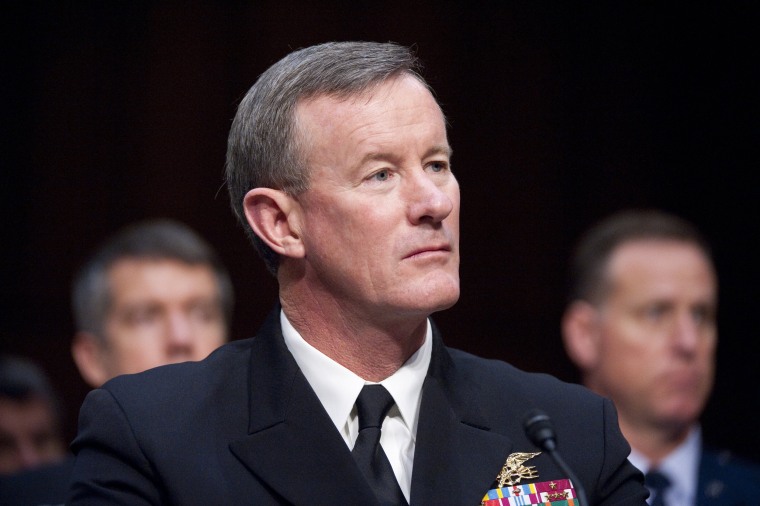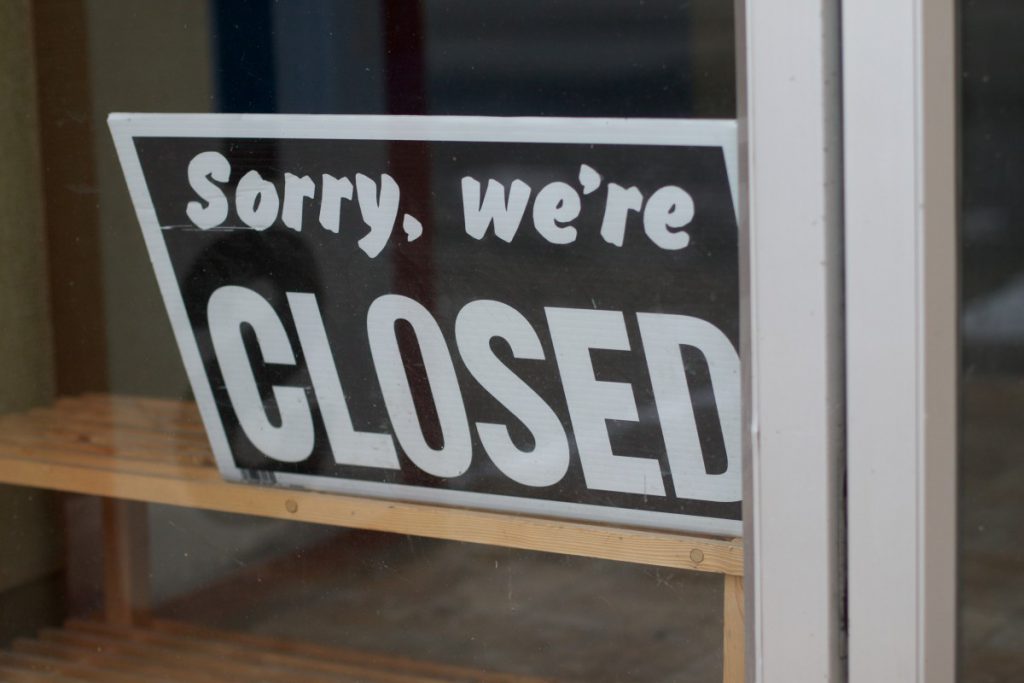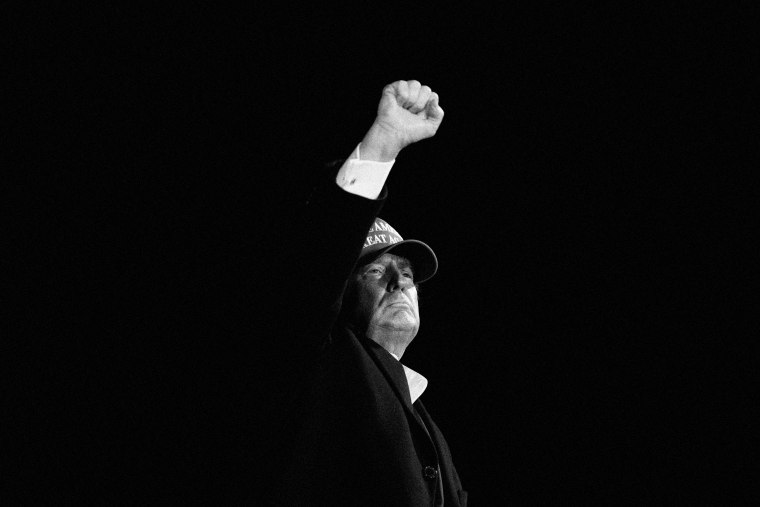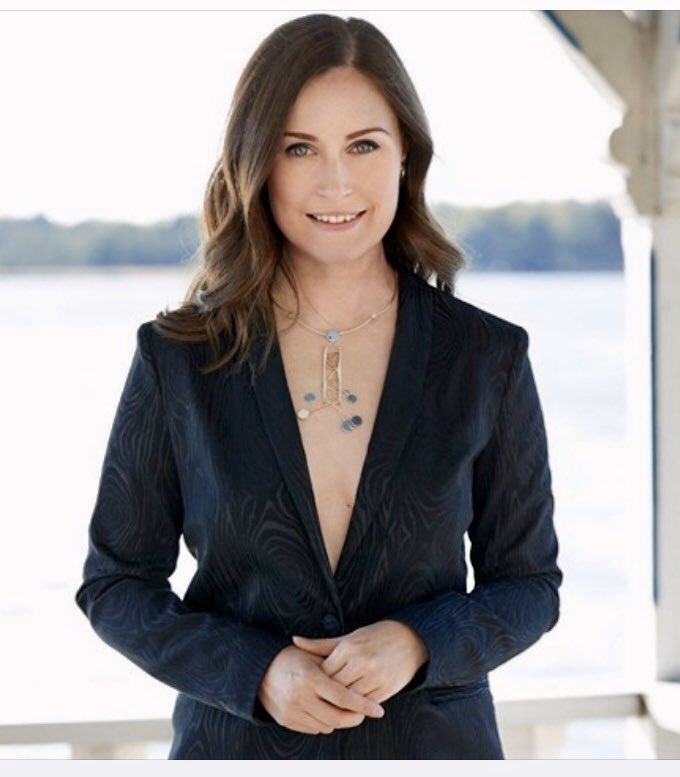MSNBC – MaddowBlog
Admiral from bin Laden raid endorses Biden in dramatic fashion
“I am a pro-life, pro-Second Amendment, small-government, strong-defense and a national-anthem-standing conservative,” William McRaven wrote. “But…”

Navy Admiral Bill McRaven testifies during a Senate Armed Services Committee hearing in 2012.Bill Clark / CQ-Roll Call, Inc. file
To a degree without modern precedent, an astonishing number of retired American military leaders have stepped up in recent months to denounce Donald Trump, endorse Joe Biden, or both. The list includes four former chairmen of the Joint Chiefs, each of whom have publicly slammed the incumbent president ahead of his re-election bid.
But as regular readers know, one retired U.S. military leader in particular has gone further than most in warning the public about the man in the Oval Office.
Retired Adm. William McRaven, the former commander of the U.S. Special Operations Command, is perhaps best known to Americans as the Navy SEAL who oversaw the 2011 raid that killed Osama bin Laden. In a new op-ed for the Wall Street Journal, the retired admiral talks about the ballot he cast this week in Texas.
Truth be told, I am a pro-life, pro-Second Amendment, small-government, strong-defense and a national-anthem-standing conservative. But, I also believe that black lives matter, that the Dreamers deserve a path to citizenship, that diversity and inclusion are essential to our national success, that education is the great equalizer, that climate change is real and that the First Amendment is the cornerstone of our democracy. Most important, I believe that America must lead in the world with courage, conviction and a sense of honor and humility.
He added, “I voted for Joe Biden.”
Taking aim specifically at the president’s repeated insistence that the United States is held in higher regard thanks to his leadership, McRaven also wrote, without ever mentioning the incumbent president’s name:
Now, the world no longer looks up to America. They have been witness to our dismissiveness, our lack of respect and our transactional approach to global issues. They have seen us tear up our treaties, leave our allies on the battlefield and cozy up to despots and dictators. They have seen our incompetence in handling the pandemic and the wildfires. They have seen us struggle with social injustice. They no longer think we can lead, because they have seen an ineptness and a disdain for civility that is beyond anything in their memory. But, without American leadership the world will indeed be transformed, just not in the way we hope.
I’ve long been fascinated by McRaven’s gradual transition from a retired military leader, content to leave political fights to others, to someone who felt compelled by Trump’s antics to enter the political debate in earnest.
Just weeks into the Trump era, for example, the retired admiral tipped his toes in these waters, describing Trump’s condemnations of his own country’s free press possibly “the greatest threat to democracy in my lifetime.”
About a year later, after the president said he’d revoke the security clearances of some of his critics, McRaven wrote an op-ed for the Washington Post urging Trump to revoke his security clearance, too, explaining that he would consider it “an honor” to stand alongside those “who have spoken up against your presidency.”
Last fall, McRaven wrote another piece, this time for the New York Times, reflecting on the president’s willingness to break faith with American allies and American principles. He added that “the fate of our Republic” may depend upon replacing Trump as quickly as possible.
In February 2020, McRaven wrote another Washington Post op-ed, which concluded, “As Americans, we should be frightened — deeply afraid for the future of the nation. When good men and women can’t speak the truth, when facts are inconvenient, when integrity and character no longer matter, when presidential ego and self-preservation are more important than national security — then there is nothing left to stop the triumph of evil.”
Four months later, the retired Navy admiral explained, “President Trump has shown he doesn’t have the qualities necessary to be a good commander in chief.” On the anniversary of D-Day, McRaven contrasted Trump’s style with the kind of qualities from earlier wartime leaders. “As we have struggled with the COVID pandemic and horrible acts of racism and injustice, this president has shown none of those qualities,” the admiral said. “The country needs to move forward without him at the helm.”
In August, McRaven rang the alarm once more, positioning himself as one of the nation’s most unexpected, most forceful, and most credible Trump detractors. In a Washington Post op-ed, he argued persuasively, “Today, as we struggle with social upheaval, soaring debt, record unemployment, a runaway pandemic, and rising threats from China and Russia, President Trump is actively working to undermine every major institution in this country.”
A couple of years ago, asked for a response to the criticisms, Trump said, “I don’t know McRaven.” Evidently, McRaven knows him all too well.





















